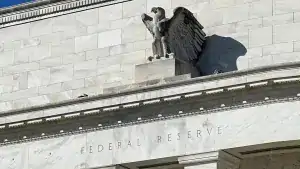Bitcoin (BTC) has seen a significant rally, up nearly 40% since March 11. It outperforms almost all altcoins, including Ethereum (ETH).
Some argue that this confirms Bitcoin’s “inflation hedge” theory. Just nine months ago, it was a nearly unconvincing argument, if not completely obsolete.
Bitcoin falls as inflation peaks. But only now is the real impact of inflation on the financial system emerging, and Bitcoin is finally responding.
Bitcoin is a “hedge” against systemic chaos rather than consumer spending power waning. The idea that Bitcoin behaves in an orderly fashion in response to dollar inflation has always been a simplification of the true argument.
For such a mechanism to work in the first place, Bitcoin needs to be more widely adopted. For Bitcoin to respond linearly to inflation, there is too much speculation currently priced into it.
But beyond that, a more nuanced version of the inflation-hedging claim is that the real risk that Bitcoin can hedge against is the structural chaos of the financial crisis, such as the closure of deposit-taking banks. As currently unfolding, the financial crisis is more closely tied to central bank actions such as rate hikes.
Possibility of misinterpretation
However, they may be misinterpreting Bitcoin price signals. It may not be rising because of the long-term impact of inflation, but because markets are thinking the opposite. That is, the possibility of the central bank ending or suspending rate hikes. This is a sign of resurgence for all risk assets.
In fact, the steepest part of Bitcoin’s rally came after March 13, when it was announced that Silicon Valley Bank would be bailed out.
Silicon Valley Bank was hurt by investing on the assumption that interest rates would rise in the long term. And bank failures are creating red flags for rate hikes by the US Federal Reserve.
“A lot of hedge funds were expecting a continuation of the inflationary tightening policy,” said Bob Elliot of Unlimited Funds.
“The deflationary risk from the banking crisis has rapidly changed fundamentals and market dynamics, and many funds have been mispositioned.”
Such a move may have pushed Bitcoin’s rise. The market believes the Fed may stop or even cut rates after three bank failures in a week, which could lead to a new risk asset boom. It may just have been compounded by a shift to Bitcoin by those worried about banking.
true value of bitcoin
This point will become even clearer this week. The FOMC (Federal Open Market Committee) is scheduled to meet on the 21st and is expected to announce a rate hike on the 22nd. But if the FOMC decides that there is a high risk of another financial crisis, rate hikes may be halted.
But with inflation still at 6%, I personally think the rate hikes are likely to continue. A rate hike of 0.25% is possible, but not without a rate hike.
Should there be no rate hike, the market could interpret it as a sign that cheap money is starting to flow in again. Even if the Fed renews its resolve to fight inflation at all costs, Bitcoin could rise significantly as a risk asset.
The real test of Bitcoin’s “inflation hedge” is whether more bank troubles will lead to further Bitcoin appreciation, independent of interest rates. Until then, it’s all speculation.
|Translation and editing: Akiko Yamaguchi, Takayuki Masuda
| Image: Federal Reserve exterior (Helene Braun/CoinDesk)
|Original: Does Bitcoin’s Rally Vindicate the ‘Inflation Hedge’ Thesis – or Is Risk Back on the Menu?
Does Bitcoin’s Rise Support the ‘Inflation Hedging’ Theory?[Column]| coindesk JAPAN | Coindesk Japan appeared first on Our Bitcoin News.




